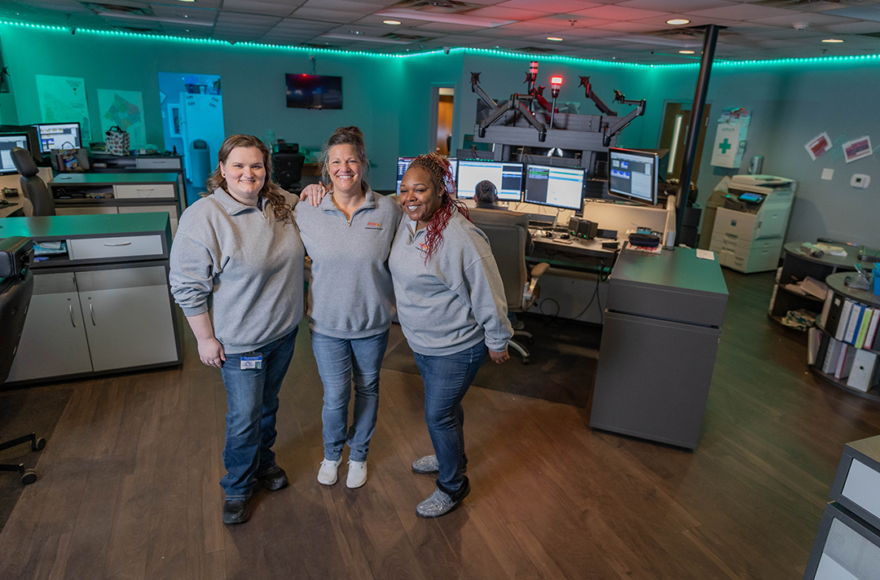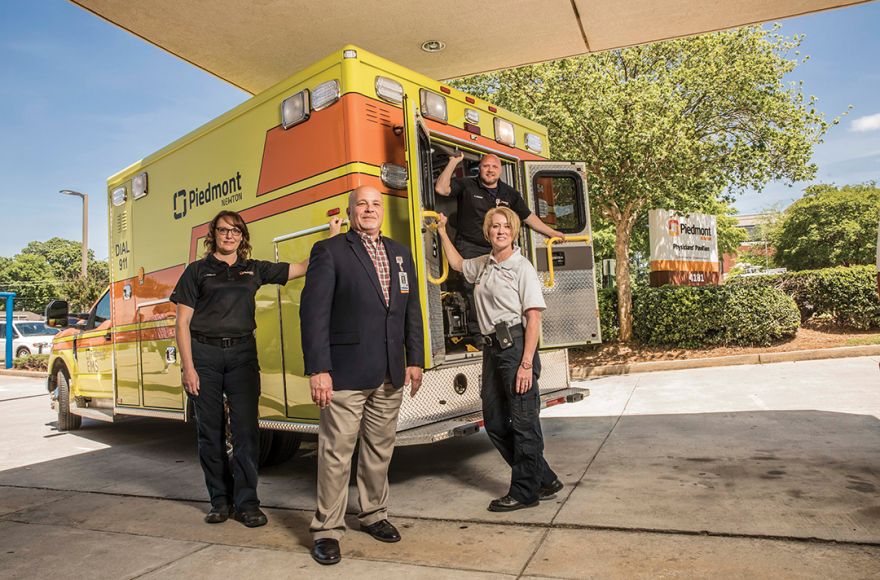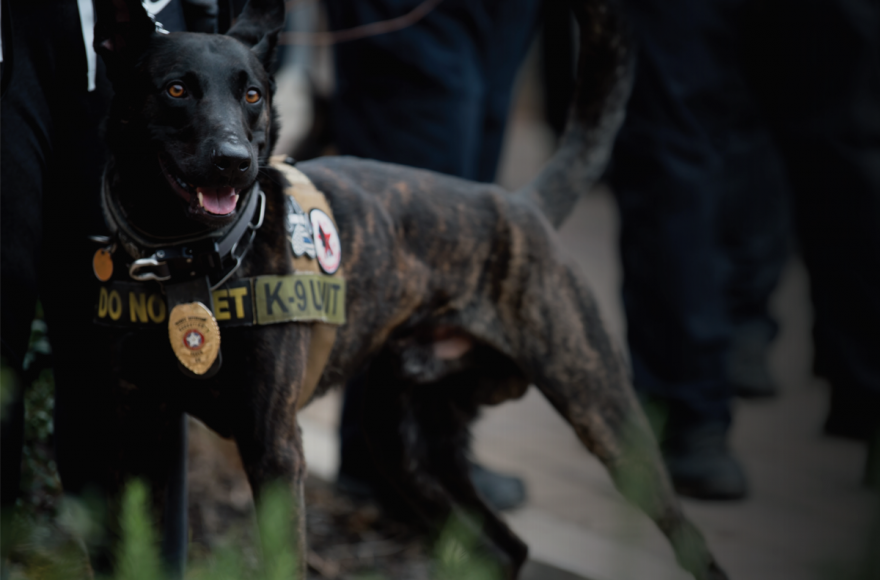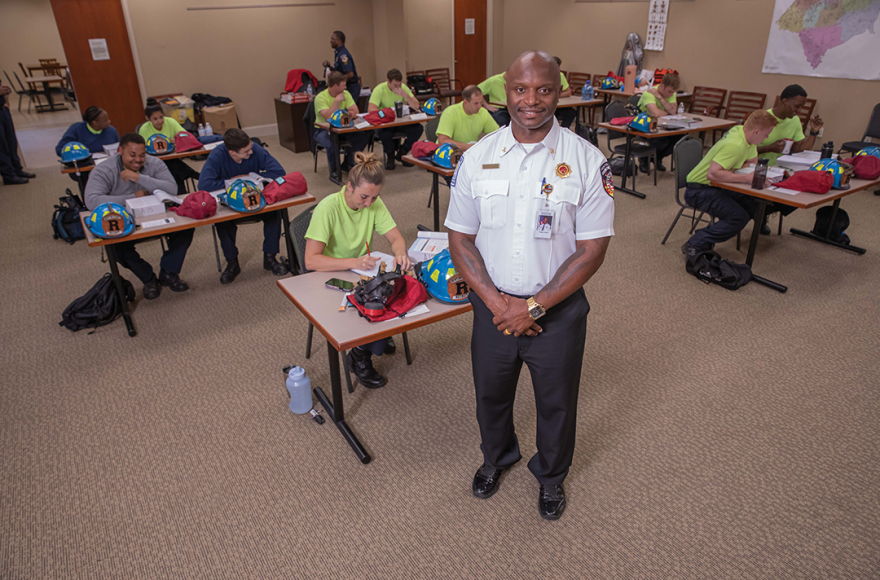911 dispatchers are an often overlooked but vital part of any first-responder department. With an incredibly stressful work environment and the ability to multitask at levels few ever master, they hold the keys to delivering help where needed.
Do not let the friendly voices at the other end of the line fool you when you call the Covington-Newton 911 Center. These dispatchers can get tough when situations call for it. Working under the leadership of director Trudy Henry, dispatchers Kei’Ana Sims, Krista Hipps and Hillary Wilder agree that theirs is a career intended for only a select few.
“My brother is a Newton County Sheriff’s deputy, and he thought he would try working as a dispatcher. He left after two months, saying he didn’t know how we did it,” Sims said with a laugh. She now serves as a team leader and considers herself a “dispatch baby” because her mother was also a dispatcher. “Once you get a taste of this job, you either like it or you don’t. No other job compares to what we deal with. It’s almost like an addiction.”
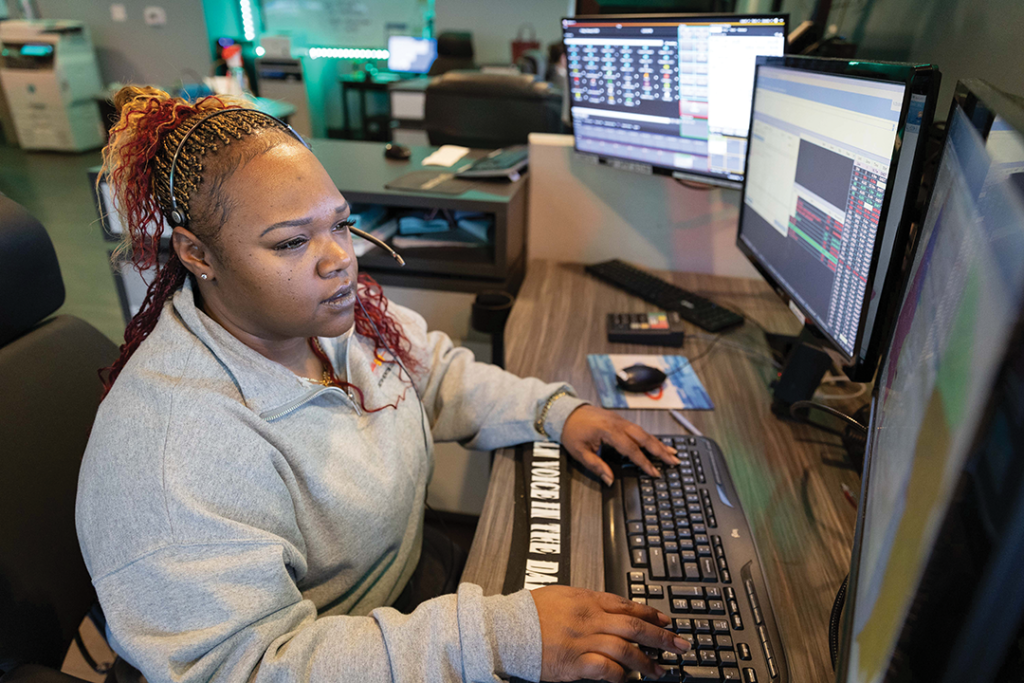
Hipps echoes her colleague’s sentiments.
“I kind of fell into the job in 2004. I thought I’d go see what this is all about,” she said, adding that good dispatchers often possess a morbid sense of humor and innate toughness. “I’ve tried working other jobs since, but everywhere else is boring in comparison and I always come back. We’re like a family—a dysfunctional one.”
Wilder recently celebrated 10 years at Covington-Newton 911.
“I’ve been around radios all my life,” she said. “My dad, Burt Cram, had a radio business and maintained the county’s radio systems for years.” Wilder finds that her degree in criminal justice has helped her perform her role in law enforcement, but she considers multitasking her primary strength. “One minute, you’re on the phone with a husband and wife fighting over the remote control; the next call is from someone who wants their body to be found after they [commit suicide].” Wilder said. “The next call is a mother who can’t get her child to wake up, and then you’re managing a cop on a chase. The variety makes it interesting.”
“Once you get a taste of this job, you either like it or you don’t. No other job compares to what we deal with. It’s almost like an addiction.”
Kei’Ana Sims
All dispatchers at the Covington-Newton County 911 center are trained through the Association of Public-Safety Communications Officials, often described as “the honors program” of dispatcher training. The center is also accredited through the Commission on Accreditation for Law Enforcement. This voluntary process signifies the agency meets internationally accepted best practices for 911 communication centers.
Adhering to higher standards keeps only the best dispatchers on staff. Dispatchers work 12-hour shifts around the clock with no designated breaks. Little room exists for upward mobility. The job is so stressful that the center adopted an emotional support dog, a goldendoodle named Annie. Because of the high employee turnover rate, it is viewed as a gift when employees remain long enough to form a tight-knit team. Sims, Hipps and Wilder have learned how to assist each other without being asked.
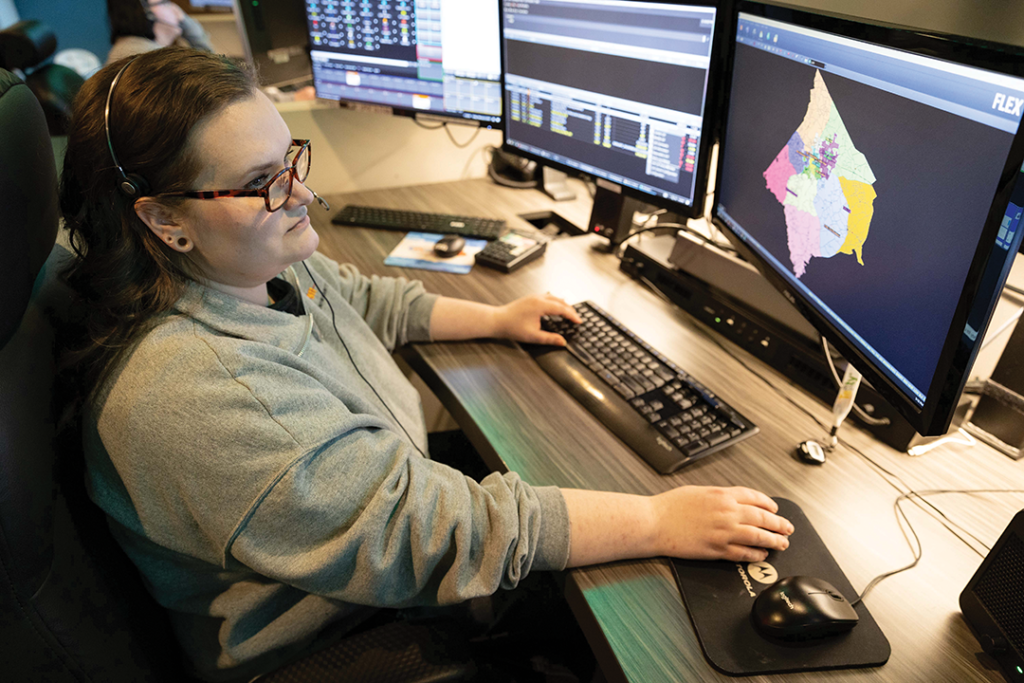
“If you’re on the radio and hear that another dispatcher needs an ambulance, you make that call for them,” Sims said. “You not only focus on your own screen; you hear the whole room. If you sense another dispatcher is struggling, you help them out.”
The dispatchers have learned to work around one another’s strengths and weaknesses. Sims admits she can get squeamish when children are involved in an emergency, while Wilder concedes she struggles with animals. Both women credit Hipps’ years on the job with having given her the expertise to handle unusual circumstances, such as when a small plane crashed in the General Mills parking lot in 2022. “I’ve learned how to dig out the relevant information,” Hipps said. Sims expounded upon the sentiment. “We are paid to be nosy,” she said, “but sometimes people fight against telling us stuff, so that’s when we have to take on that commanding tone and be firm. We have to know how to send the right kind of help, and our questions aren’t delaying help. Most of the time, they’re already on the way.”
Hipps made sure to note that a dispatcher’s job differs from what is often portrayed on TV.
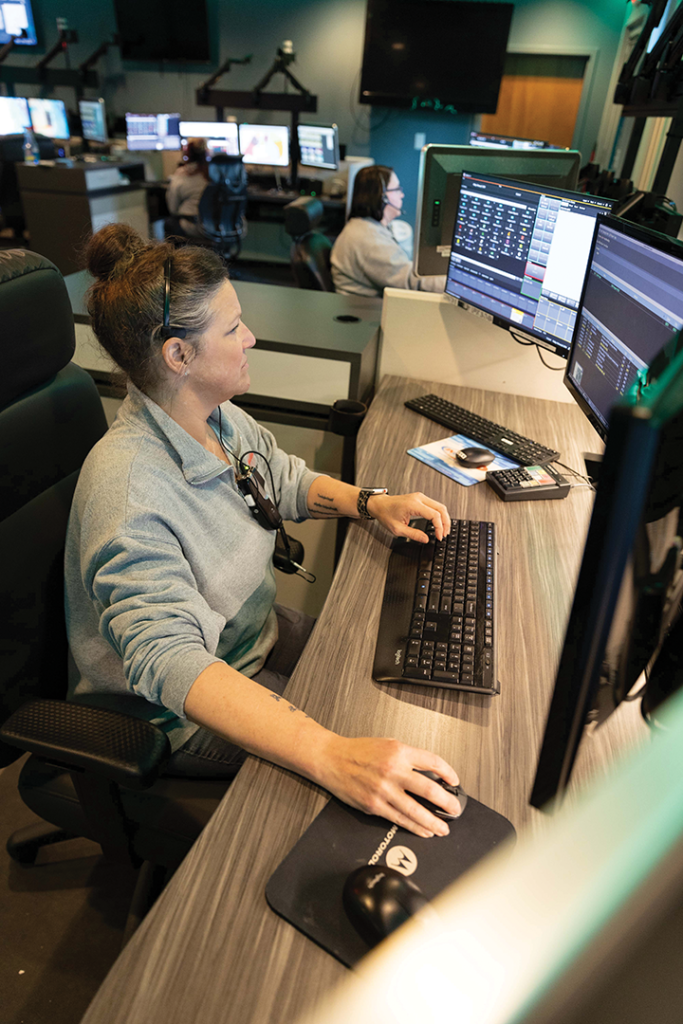
“You’d be surprised by how many people don’t know their own address,” she said. “We at least need a cross street. Your cell phone does not pinpoint exactly where you are.”
Wilder estimates that around 80 to 90% of incoming calls do not involve life-threatening situations. “Of course, you should call in a true emergency, but don’t lie, saying someone has a gun or a knife, thinking help will arrive quicker,” she said. Hipps added that most people believe they will get preferential treatment if they arrive at the hospital in an ambulance. “It’s not true,” she said. “You’ll be triaged like everyone else. We manage a lot: phones, dispatch, EMS, fire, admin and 911 lines for the county and the city. We have a duty to the public to make sure every call is answered.”
Click here to read more stories by Kari Apted.

